하이브 커뮤니티와 한국 마을 커뮤니티 회원 및 작가 여러분께 인사드립니다. 한국 문화와 세계 여러 나라와의 유사점을 탐구하는 이 콘테스트에 참여하게 되어 기쁩니다.
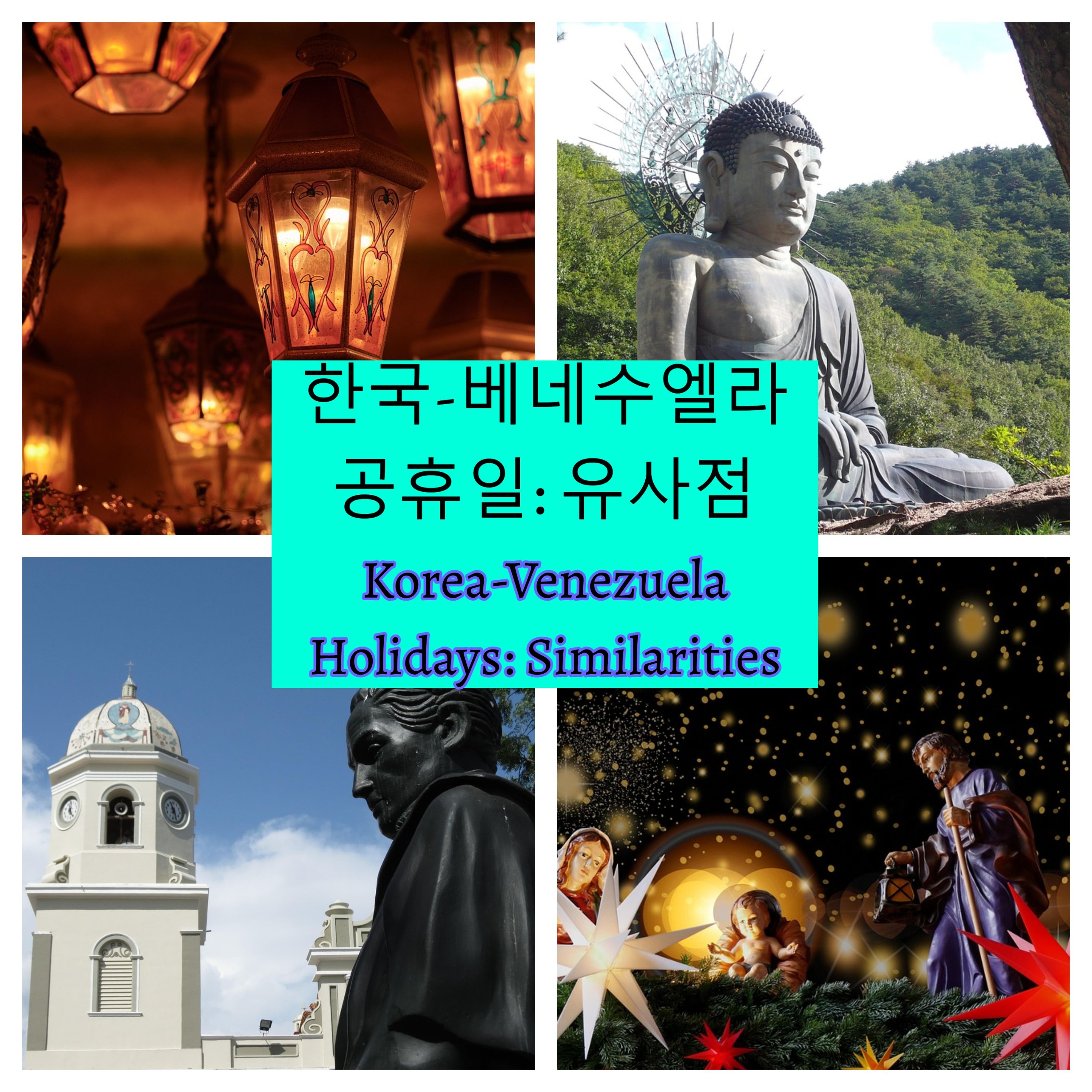
제 고향은 베네수엘라입니다. 베네수엘라는 매우 다양한 나라로, 일 년 내내 다양한 명절을 기념합니다. 역사, 종교, 환경, 지역 등 다양한 명절이 있으며, 전 세계적으로 주목받는 명절도 있습니다.
한국과 베네수엘라 문화권의 명절에 대해 이야기하자면, 서로 관련이 있지만 몇 가지 특징이 다를 수 있는 명절이 많다고 말씀드릴 수 있습니다. 우리의 명절은 차이점보다는 공통점이 많습니다.
베네수엘라와 한국의 명절에 대해 조사해 봤는데, 유사점이 있을 만한 명절이 몇 가지 있었습니다. 서로 다른 문화를 가진 나라들이지만, 공통점도 분명히 있습니다.
온라인에서 찾을 수 있는 정보를 활용하여 두 나라의 명절과 그 유사점을 자세히 살펴보는 연구 프로젝트를 소개합니다.
여기에는 제가 고등학생들에게 각 과목의 연구 점수를 부여할 때 사용하는 비교표와 유사한 비교표를 만들었습니다.
문화적 관점에서 보면, 서로 다른 나라와 문화에 속해 있음에도 불구하고, 두 나라 모두에서 다음과 같은 유사한 명절을 찾을 수 있었습니다.
한국의 명절: inf
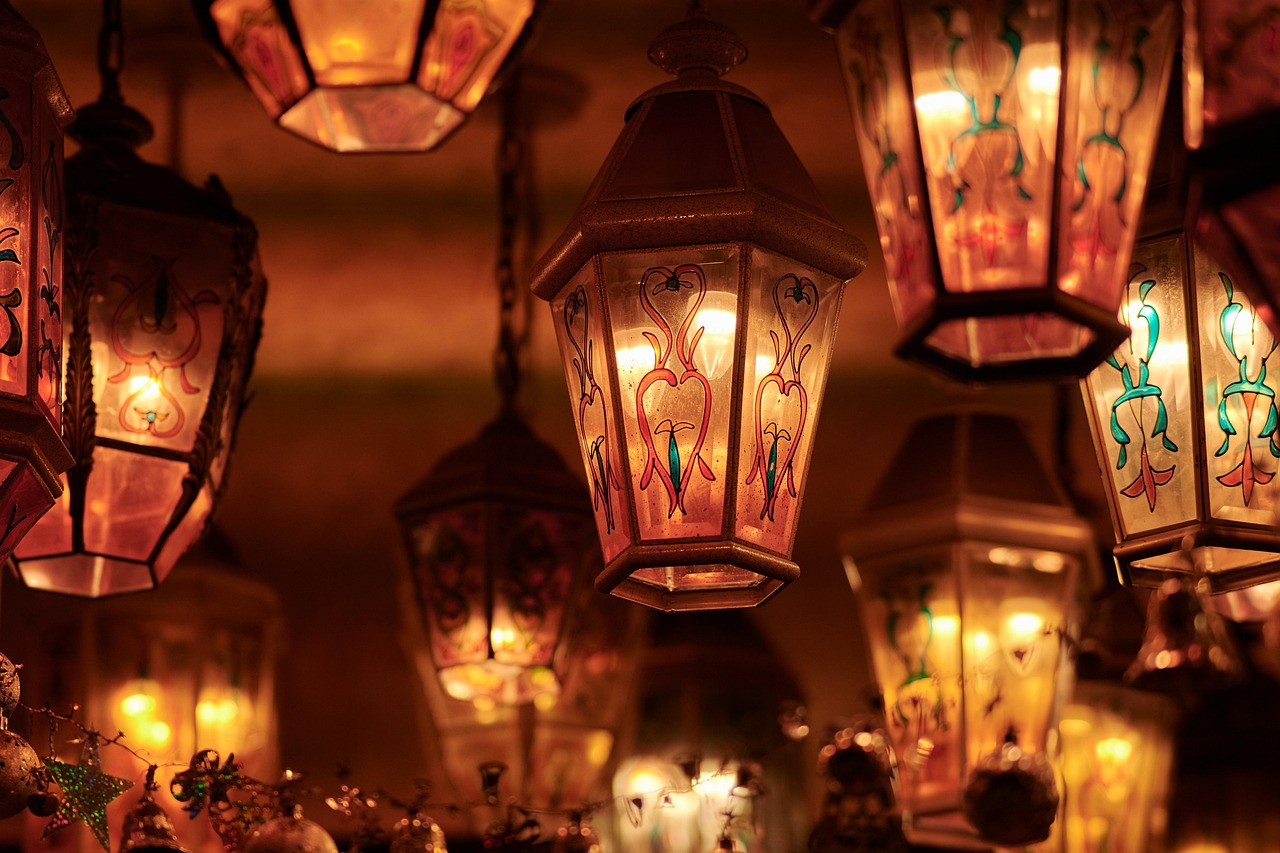 등불
등불
1월 1일: 새해 첫날
3월 1일: 독립기념일(삼일절)은 1919년 독립선언을 기념하는 날입니다.
8월 15일: 광복절(광복절)은 1945년 일제 강점기로부터 해방된 것을 기념하는 날입니다.
**12월 25일: 크리스마스(성탄절)는 한국의 국경일입니다.
**부처님 탄생일(초파): 음력 4월 8일입니다.
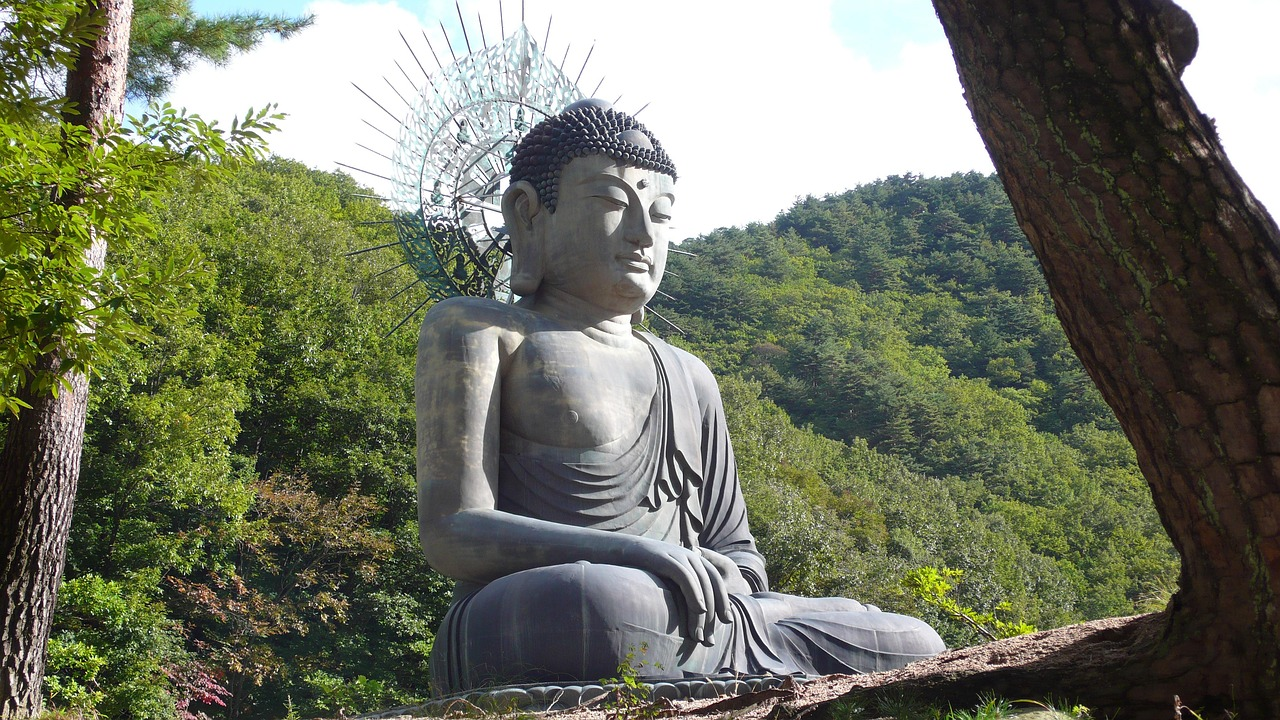 부처님
부처님
축제 베네수엘라:inf
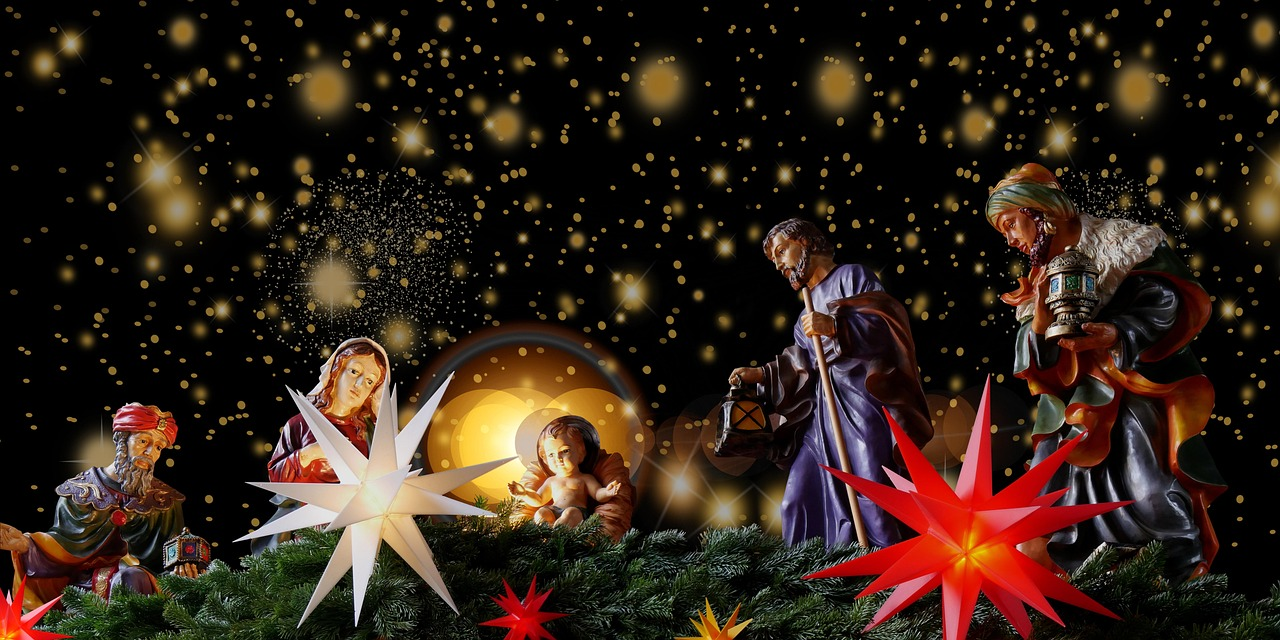 크리스마스
크리스마스
1월 1일: 설날
4월 19일: 첫 번째 독립 전 운동. 1810년 4월 19일 비센테 엠파란의 해임
7월 5일: 독립 선언
7월 24일: 해방자 시몬 볼리바르 탄생.
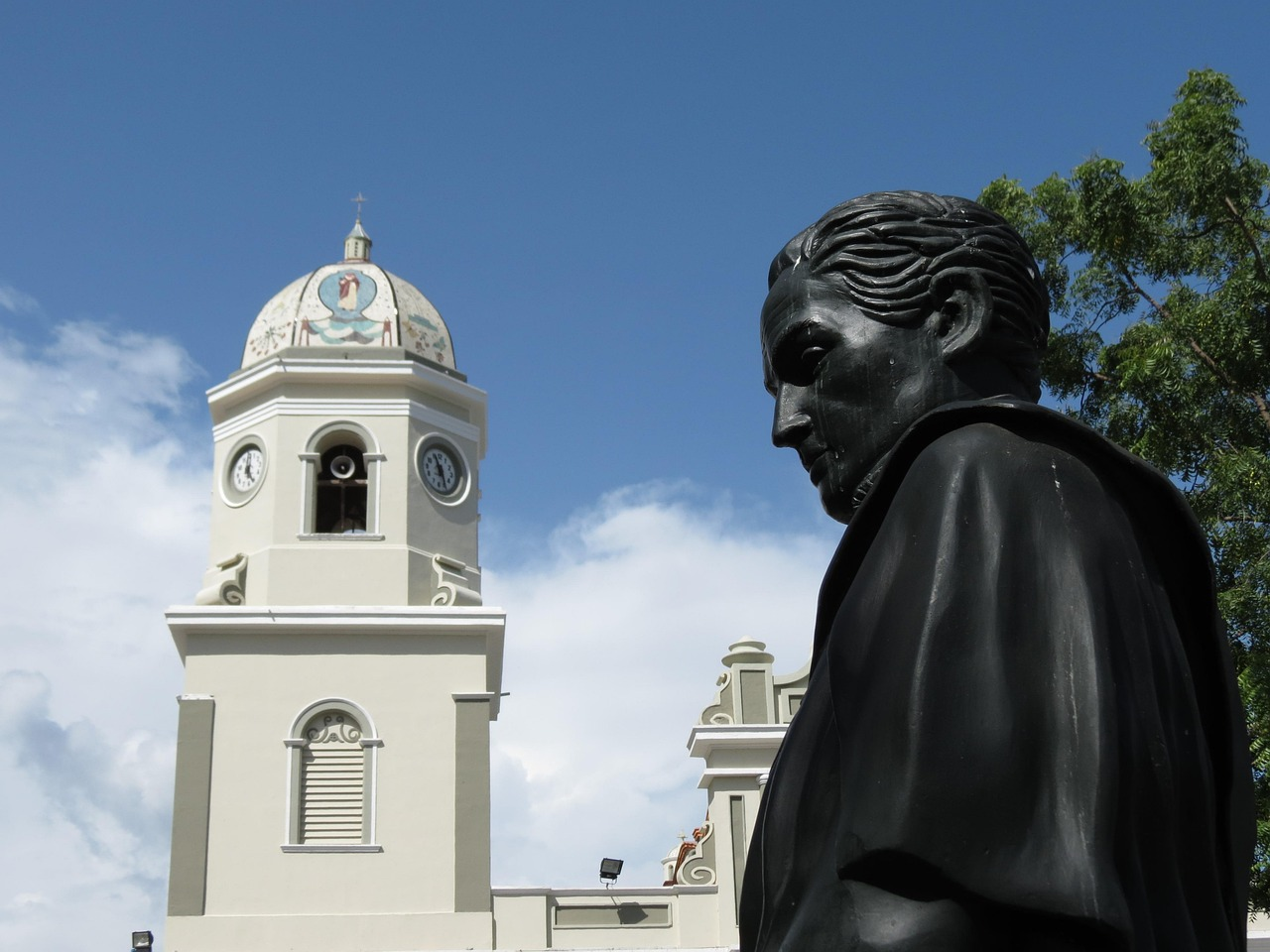 [시몬 볼리바르. 해방자
[시몬 볼리바르. 해방자
한국과 베네수엘라의 명절은 각자의 역사에서 서로 다른 사건과 인물을 기념하지만, 국가 정체성을 강화하고, 과거를 기리고, 통합을 증진하기 위해 명절을 활용한다는 근본적인 유사점을 가지고 있습니다. 두 문화 모두 독립과 주권을 기념하는 기념 행사뿐만 아니라 가족 및 사회 통합을 촉진하는 축제를 중시합니다.
| 공휴일 |
한국 공휴일 |
베네수엘라 공휴일 |
유사점 |
| 새해 |
1월 1일(설): 양력 새해의 시작을 알리는 국경일입니다. 가족 모임, 사찰 참배, 행운을 기원하는 의식 등으로 기념합니다. |
1월 1일(설): 한 해의 시작을 기념하는 국경일입니다. 가족 모임, 파티, 불꽃놀이 등으로 기념합니다. |
양국 모두 1월 1일을 양력 새해의 시작을 알리는 국경일로 기념합니다. 이 기념일은 가족과 새로운 시작에 대한 희망을 중심으로 합니다. 두 나라 모두 사랑하는 사람들을 만나 특별한 식사를 함께하는 날입니다. |
| 독립기념일 |
3월 1일(3.1절): 1919년 일제 강점기에 항거한 독립운동의 시작을 기념합니다. 8월 15일(광복절): 1945년 한국이 일본의 지배로부터 해방된 것을 기념합니다. |
4월 19일(제1차 독립운동): 1810년 비센테 엠파란의 축출을 기념하며, 이는 독립을 향한 중요한 발걸음이었습니다. 7월 5일(독립선언): 1811년 베네수엘라 독립선언서에 서명한 것을 기념합니다. |
양국 모두 독립과 주권을 위한 투쟁의 역사에서 중요한 사건을 기념하는 공휴일을 가지고 있습니다. 이러한 공휴일은 외세의 지배에서 벗어나기 위해 노력한 조상들의 노력을 기억하는 것의 중요성을 반영합니다. 국가 영웅을 기리기 위해 퍼레이드, 의식, 시민 행사가 개최됩니다. |
| 종교/역사 |
부처님 탄생일(초파이): 음력 4월 8일에 기념합니다. 등불 축제와 사찰 의식으로 기념하는 불교 종교 명절입니다. |
7월 24일(해방자 시몬 볼리바르 탄신일): 남미 여러 지역의 독립을 이끈 지도자의 탄생을 기념하는 날입니다. 시민 및 군사 행사가 열립니다. |
두 나라 모두 문화적, 종교적으로 중요한 인물이나 사건을 기리는 공휴일을 가지고 있습니다. 석가탄신일은 종교적 공휴일이고 볼리바르 탄신일은 역사적 사건이지만, 두 날 모두 깊은 문화적, 상징적 의미를 지닌 것으로 국가적으로 인정받고 있습니다. 이를 기념하기 위해 특별한 의식과 행사가 열립니다. |
| 기타 국경일 |
12월 25일(크리스마스): 한국의 국경일입니다. 서울을 비롯한 주요 도시의 거리는 조명, 장식, 크리스마스 트리로 장식됩니다. 쇼핑몰, 상점, 놀이공원에는 화환, 가랜드, 산타클로스 인형이 전시되어 대부분의 사무실과 학교가 문을 닫습니다. |
크리스마스는 가족의 가치를 높이는 가장 중요한 시기 중 하나입니다. 전통 음식을 나누고 선물을 교환하는 모임이 열립니다. 베네수엘라의 크리스마스 전통은 서양, 특히 유럽 기독교 전통(산타클로스 인형, 크리스마스 트리 등)의 영향을 많이 받았습니다. 특히 선물을 받는 어린이들에게는 크리스마스의 핵심적인 풍습입니다. |
양국 모두 12월 25일을 국경일로 지정하여 국민들이 하루 동안 휴일을 즐기고 축제 활동에 참여할 수 있도록 합니다. 양국 모두 공공장소와 상업 공간에서 축제 분위기를 조성합니다. 조명, 크리스마스 트리, 기타 서양식 장식을 사용하는 것은 축제 분위기를 조성하는 중요한 유사점입니다. |
제 글이 사회적 관점에서는 다르지만 어느 정도 유사한 점이 있는 몇몇 축제들을 더 잘 이해하는 데 도움이 되기를 바랍니다. 그리고 어쩌면 우리 모두가 많은 공통점을 가지고 있음을 발견하게 될지도 모릅니다. #
여러분, 이 작은 연구를 읽고 참여해 주셔서 감사합니다. 여러분의 독창성과 창의력을 시험해 볼 수 있는 이 멋진 콘테스트에 참여하기 위해 제가 진행한 이 작은 연구에 참여해 주셔서요. 다음 글에서 뵙겠습니다.
@sacra97 @mariiale1979 @katriel1 님을 후원합니다.
Google 번역을 사용했습니다.
이미지는 Pixabay에서 가져왔습니다.
썸네일은 befunky에서 제작했습니다.
문서의 일부 내용은 wikipedia에서 참고했습니다.
English
#
Greetings to the Hive community and the members and writers of the Korean Village Community. It's a pleasure to be here to participate in this contest that invites us to explore Korean culture and its similarities with countries around the world.
#

#
My country of origin is Venezuela, a very diverse country where we celebrate different holidays throughout the year. We have celebrations of all kinds: historical, religious, environmental, regional, and we also celebrate holidays that are highlighted worldwide.
#
If we talk about holidays between Korean and Venezuelan cultures, I can say that there are many that are related, although they may vary in some characteristics. Many of our holidays, rather than differences, have many similarities.
#
I've done some research on the holidays in Venezuela and Korea that might have some similarities, and I've found several worth mentioning. Despite being different countries with somewhat diverse cultures, we do have some similarities.
#
I present my research project, in which I used the online information I could find and used it as a tool to elaborate on some of the holidays between the two countries and their similarities.
#
Here, I've created a comparison chart similar to the ones I assign to my high school students when I assign them points to research in their respective subjects.
#
From a cultural perspective, despite belonging to different countries and cultures, I was able to find the following similar holidays in both countries:
#
### Korean Holidays: [inf](https://es.wikipedia.org/wiki/Fiestas_nacionales_en_Corea_del_Sur)
#

[lantern](https://pixabay.com/es/photos/lantern-festival-lamp-decorate-6894507/)
**January 1st:** New Year's Day.
**March 1:** Independence Day (Samiljeol), commemorates the 1919 declaration of independence.
**August 15:** Liberation Day (Gwangbokjeol), commemorates the liberation from Japanese rule in 1945.
**December 25: Christmas Day**, a national holiday in Korea.
**Buddha's Birth Day** (Chopail): Celebrated on the eighth day of the fourth lunar month.

[Buddha](https://pixabay.com/es/photos/great-buda-korea-del-sur-2684123/)
### Festivities Venezuela:[inf](https://es.wikipedia.org/wiki/Anexo:Efem%C3%A9rides_en_Venezuela)
#

[Christmas](https://pixabay.com/es/photos/navidad-adviento-natividad-de-jesus-6779497/)
#
**January 1:** New Year's Day
**April 19:** First pre-independence movement. Dismissal of Vicente Emparan, April 19, 1810
**July 5:** Declaration of Independence
**July 24:** Birth of the Liberator Simón Bolívar.
#

[Simón Bolívar.The Liberator](https://pixabay.com/es/photos/venezuela-estatua-plaza-escultura-142594/)
#
Although the holidays of Korea and Venezuela commemorate different events and figures from their respective histories, they share the fundamental similarity of using holidays to strengthen national identity, honor the past, and promote unity. Both cultures value celebrations that commemorate their independence and sovereignty, as well as festivities that foster family and social unity.
|**Holiday**| **Korean Holidays**|**Venezuelan Holidays**|**Similarities**|
|-|-|-|-|
|*New Year*|January 1 (New Year): A national holiday that marks the beginning of the solar year. It is celebrated with family reunions, temple visits, and rituals to attract good luck.|January 1 (New Year): A national holiday that commemorates the beginning of the year. It is celebrated with family reunions, parties, and fireworks.| Both nations celebrate January 1 as a national holiday to mark the beginning of the solar year. The celebration focuses on family and the hope of a new beginning. In both countries, it is an occasion to reunite with loved ones and share special meals.|
|*Independence/Liberation Days*|March 1 (Independence Movement Day): Commemorates the beginning of the 1919 Independence Movement against Japanese occupation. August 15 (Liberation Day): Commemorates Korea's liberation from Japanese rule in 1945. | April 19 (First Pre-Independence Movement): Commemorates the ouster of Vicente Emparan in 1810, a key step toward independence. July 5 (Declaration of Independence): Commemorates the signing of the Venezuelan Declaration of Independence in 1811. | Both nations have holidays dedicated to commemorating crucial events in their history of struggle for independence and sovereignty. These holidays reflect the importance of remembering the efforts of their ancestors to free themselves from foreign rule. Parades, ceremonies, and civic events are held to honor national heroes.
|*Religious/Historical*|Buddha's Birth Day (Chopail): Celebrated on the eighth day of the fourth lunar month. It is a Buddhist religious holiday commemorated with lantern festivals and temple ceremonies. | July 24 (Birthday of Liberator Simón Bolívar): Commemorates the birth of the leader of the independence of much of South America. Civic and military events are held. | Both countries have holidays that honor figures or events of great cultural and/or religious significance. Although Buddha's Day is a religious holiday and Bolívar's Birthday is a historical event, both are nationally recognized for their profound cultural and symbolic significance. Special ceremonies and activities are organized to commemorate them.|
|*Other National Holidays*| December 25 (Christmas): This is a national holiday in Korea. The streets of major cities like Seoul are decorated with lights, decorations, and Christmas trees. Shopping malls, stores, and amusement parks display wreaths, garlands, and Santa Claus figures. This means most offices and schools are closed. |Christmas is one of the most important times to enhance family values. Gatherings are held where traditional dishes are shared and gifts are exchanged. Venezuelan Christmas traditions also have a strong Western influence, especially from European Christian traditions (the figure of Santa Claus, the Christmas tree, etc.). It is a central Christmas custom, especially for children, who receive gifts.| Both countries recognize December 25th as a national holiday, allowing the population a day off to celebrate and participate in festive activities. Both nations are experiencing a festive transformation in their public and commercial spaces. The use of lights, Christmas trees, and other Western decorations is a key similarity that creates a celebratory atmosphere.
#
I hope my post can contribute to a better understanding of some of the festivities that, although different from a social perspective, have some similarities, and perhaps we will discover that as a nation we have much in common. #
Thanks, guys, for reading and participating in this little bit of research I've done to participate in this wonderful contest where we put your ingenuity and creativity to the test. See you in a future post.
#
I'm sponsoring @sacra97 @mariiale1979 @katriel1
#
>I used Google Translate
Images taken from Pixabay
Thumbnail made in [befunky](https://www.befunky.com/es/crear/collage/)
I took some references for the documentation from [wikipedia](https://es.wikipedia.org/wiki/Wikipedia:Portada)
Español
#
Saludos chicos de Hive y a los integrantes y escritores de la Comunidad de la Aldea Coreana, es un placer estar por aquí para participar en este concurso que nos invita a explorar la cultura coreana y sus similitudes con los países del mundo.
#

#
Mi país de origen es Venezuela, un país muy diverso y donde celebramos diferentes festividades durante todo el año. Tenemos celebraciones de toda índole, históricas, religiosas, ambientales, regionales e igualmente celebramos festividades que son resaltadas mundialmente.
#
Si hablamos de festividades entre la cultura coreana y venezolana puedo decir que hay muchas que guardan relación, aunque pueden variar en algunas características; muchas de las festividades que tenemos, más que diferencias poseen muchas similitudes.
#
Me he dedicado a la tarea de investigar un poco sobre las festividades en Venezuela y Corea que pudieran tener alguna silmilitud y he encontrado varias que vale la pena mencionar, porque a pesar de que somos países diferentes, con culturas un poco diversas, tenemos algunas similitudes.
#
Les presento mi trabajo de investigación en el cual me he ayudado de la información en línea que he podido conseguir y la he utilizado como herramienta para elaborar algunas festividades entre los dos países y sus similitudes.
#
He aquí que he elaborado un cuadro comparativo similar a los que les asigno a mis estudiantes de bachillerato cuando les mando los puntos a investigar en sus respectivas materias.
#
Desde el punto de vista cultural, a pesar de pertenecer a países y culturas diferentes pude conseguir las siguientes festividades similares en ambos países:
#
### Festividades de Corea:[inf](https://es.wikipedia.org/wiki/Fiestas_nacionales_en_Corea_del_Sur)
#

[linterna](https://pixabay.com/es/photos/linterna-festival-l%C3%A1mpara-decorar-6894507/)
**1 de enero:** Año Nuevo.
**1 de marzo:** Día del Movimiento por la Independencia (Samiljeol), conmemora la declaración de independencia de 1919
**15 de agosto:** Día de la Liberación (Gwangbokjeol), conmemora la liberación del dominio japonés en 1945.
**25 de diciembre: Navidad**, es festivo nacional en Corea
**Día del Nacimiento de Buda** (Chopail): Se celebra en el octavo día del cuarto mes lunar.

[Buda](https://pixabay.com/es/photos/gran-buda-corea-del-sur-2684123/)
### Festividades de Venezuela:[inf](https://es.wikipedia.org/wiki/Anexo:Efem%C3%A9rides_en_Venezuela)
#

[navidad](https://pixabay.com/es/photos/navidad-adviento-natividad-de-jesus-6779497/)
#
**1 de enero:** Año nuevo
**19 de abril:** Primer movimiento preindependentista. Destitución de Vicente Emparan, el 19 de abril de 1810
**5 de julio:** Declaración de Independencia
**24 de julio:** natalicio del Libertador Simón Bolívar.
#

[Simón Bolívar. El Libertador](https://pixabay.com/es/photos/venezuela-estatua-plaza-escultura-142594/)
#
Aunque las festividades de Corea y Venezuela conmemoran eventos y figuras diferentes de sus respectivas historias, comparten la similitud fundamental de utilizar los días feriados para fortalecer la identidad nacional, honrar el pasado y promover la unidad. Ambas culturas valoran las celebraciones que conmemoran su independencia y soberanía, además de las festividades que fomentan la unión familiar y social.
|**Festividad**|**Festividades de Corea**|**Festividades de Venezuela**|**Similitudes**|
|-|-|-|-|
|*Año Nuevo*|1 de enero (Año Nuevo): Es un feriado nacional que marca el inicio del año solar. Se celebra con reuniones familiares, visitas a templos y rituales para atraer la buena suerte.|1 de enero (Año Nuevo): Feriado nacional que conmemora el inicio del año. Se celebra con reuniones familiares, fiestas y fuegos artificiales.| Ambas naciones celebran el 1 de enero como un feriado nacional para marcar el inicio del año solar. La celebración se centra en la familia y la esperanza de un nuevo comienzo. En ambos países, es una ocasión para reunirse con seres queridos y compartir comidas especiales.|
|*Días de la Independencia/Liberación*|1 de marzo (Día del Movimiento por la Independencia): Conmemora el inicio del Movimiento de Independencia de 1919 contra la ocupación japonesa. 15 de agosto (Día de la Liberación): Conmemora la liberación de Corea del dominio japonés en 1945.|19 de abril (Primer movimiento preindependentista): Conmemora la destitución de Vicente Emparan en 1810, un paso clave hacia la independencia. 5 de julio (Declaración de Independencia): Conmemora la firma del Acta de la Declaración de Independencia de Venezuela en 1811.|Ambas naciones tienen días festivos dedicados a conmemorar eventos cruciales en su historia de lucha por la independencia y la soberanía. Estas festividades reflejan la importancia de recordar los esfuerzos de sus antepasados para liberarse del dominio extranjero. Se realizan desfiles, ceremonias y eventos cívicos para honrar a los héroes nacionales.
|*Religiosas/Históricas*|Día del Nacimiento de Buda (Chopail): Celebrado el octavo día del cuarto mes lunar. Es una festividad religiosa budista conmemorada con festivales de linternas y ceremonias en templos.|24 de julio (Natalicio del Libertador Simón Bolívar): Conmemora el nacimiento del líder de la independencia de gran parte de América del Sur. Se realizan actos cívicos y militares.|Ambos países tienen días festivos que honran a figuras o eventos de gran importancia cultural y/o religiosa. Aunque el Día de Buda es una festividad religiosa y el Natalicio de Bolívar es un evento histórico, ambos son reconocidos a nivel nacional por su profunda relevancia cultural y simbólica. Se organizan ceremonias y actividades especiales para conmemorarlos|
|*Otros días festivos nacionales*| 25 de diciembre (Navidad): Este es un día festivo nacional en Corea. Las calles de las principales ciudades como Seúl se decoran con luces, adornos y árboles de Navidad. Los centros comerciales, tiendas y parques de atracciones exhiben coronas, guirnaldas y figuras de Papá Noel. Esto significa que la mayoría de las oficinas y escuelas están cerradas. |La Navidad es una de las épocas más importantes para fortalecer los valores familiares. Se celebran reuniones donde se comparten platos tradicionales y se intercambian regalos. Las tradiciones navideñas venezolanas también tienen una fuerte influencia occidental, especialmente de las tradiciones cristianas europeas (la figura de Papá Noel, el árbol de Navidad, etc.). Es una costumbre navideña central, especialmente para los niños, quienes reciben regalos.|Ambos países reconocen el 25 de diciembre como día festivo nacional, lo que permite a la población un día libre para celebrar y participar en actividades festivas. Ambas naciones están experimentando una transformación festiva en sus espacios públicos y comerciales. El uso de luces, árboles de Navidad y otras decoraciones occidentales es una similitud clave que crea un ambiente festivo.|
#
Espero mi post pueda contribuir a una mejor comprensión sobre algunas de las fetividades que aunque diferentes desde el punto de vista social, guardan algunas similitudes y tal vez descubramos que como nación tenemos mucho en común.

 [시몬 볼리바르. 해방자
[시몬 볼리바르. 해방자

